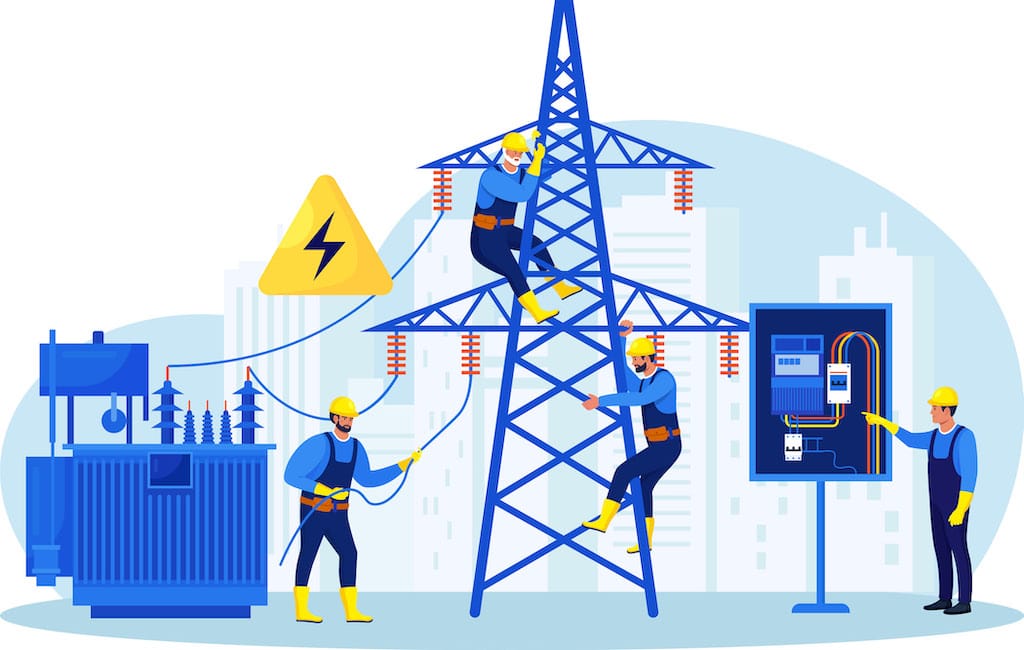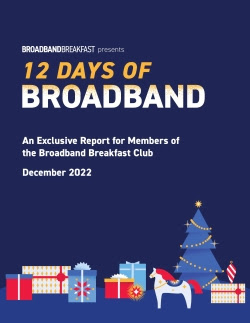Utility Companies and Pole Attachers Debate Responsibility for Pole Replacement Costs
The controversy is about the rates that internet companies seeking to put fiber on utility poles need to pay.
Teralyn Whipple

Over the course of 2022, the heat has risen in the debate surrounding pole replacement costs. The issue is all the more salient with the need to attach new fiber installations as part of the large amount of federal funding for broadband.
The specific controversy centers around the rates that broadband companies seeking to put fiber on utility poles need to pay the owners of the poles, often utilities. Internet companies claim that utility companies place an undue financial burden on attachers.
The 12 Days of Broadband 2022 (click to open)
- On the First Day of Broadband, my true love sent to me:
A Symmetrical Gigabit Network - On the Second Day of Broadband, my true love sent to me:
24 Reverse-Preemption Pole Attachment States (2022 edition) - On the Third Day of Broadband, my true love sent to me:
Section Two-30 of the Communications Decency Act - On the Fourth Day of Broadband, my true love sent to me:
$42.5 billion in Broadband Equity, Access and Deployment funds - On the Fifth Day of Broadband, my true love sent to me:
5 Federal Communications Commissioners - On the Sixth Day of Broadband, my true love sent to me:
Wi-Fi 6E - On the Seventh Day of Broadband, my true love sent to me:
7.7% annual inflation rate - On the Eighth Day of Broadband, my true love sent to me:
8,132,968 census blocks and a national Broadband Fabric - On the Ninth Day of Broadband, my true love sent to me:
$9 Billion Universal Service Fund - On the Tenth Day of Broadband, my true love sent to me:
$10 Billion Remaining in the Affordable Connectivity Program - On the Eleventh Day of Broadband, my true love sent to me:
11th Year of Xi Jinping’s rule in China - On the Twelfth Day of Broadband, my true love sent to me:
12 or More State Broadband Officers
For the 27 states that have no law governing pole attachments, the Federal Communications Commission is responsible for policing the controversy. The other 23 states and the District of Columbia have undertaken the “reverse preemption” process, certifying to the FCC that they regulate pole attachments and are therefore exempt from FCC rules on the process. In June, Florida became the 24th jurisdiction to certify.
In March, the FCC voted to seek comment on establishing clear standards for how utilities and pole attachers share in the costs of pole replacements.

Commenter Schools, Health and Libraries Coalition claimed that under the current model, pole owners are not required to share information regarding the age of the pole, tagged status, replacement, and maintenance schedules. “Without such transparency, the attacher maintains little recourse to contest these costs, aside from blindly questioning them,” said SHLB.
The debate regarding which entity should bear pole replacement costs revolves around which company benefits most from the replacement. Industry trade group INCOMPAS said in a November letter to the FCC that the agency should presume that pole owners benefit from replacements. Even in the case of make-ready costs, utility pole owners benefit from pole replacements as much as attachers, said T-Mobile in response to the March Notice of Inquiry.
The Utilities Technology Council criticized this argument, saying in its comments that the benefits of pole replacements are “insignificant” for utilities in comparison to the great benefit it provides attachers.
Other temporary solutions are being considered. In May, Charter Communications representative, Marva Johnson, argued that pole replacement funds should be sponsored by states. Furthermore, some states are working to streamline broadband service provider access to utility poles by working with utility companies to identify regions in the state that have little to no infrastructure on poles.
Charter Communications urged the FCC to “promptly” proceed in requiring pole owners to share the cost of replacing poles in October. A decision by the agency on the rules governing the 27 states is still forthcoming.








Member discussion